Critical Thinking Normal Worksheets for Ages 5-9
99 filtered results
-
From - To
Nurture inquisitive minds with our "Critical Thinking Normal Worksheets for Ages 5-9." These thoughtfully designed activities aim to develop essential problem-solving skills and stimulate young learners' analytical abilities through engaging tasks. Each worksheet prompts kids to delve deeper into various scenarios, enhancing their logical reasoning and decision-making talents. Aligning seamlessly with elementary learning goals, these exercises provide age-appropriate challenges to encourage independent thinking and foster a fun, inquisitive spirit. Ideal for both at-home and classroom use, our resources are perfect for guiding children towards becoming confident, critical thinkers equipped for lifelong learning. Join Kids Academy to spark their intellectual curiosity today!
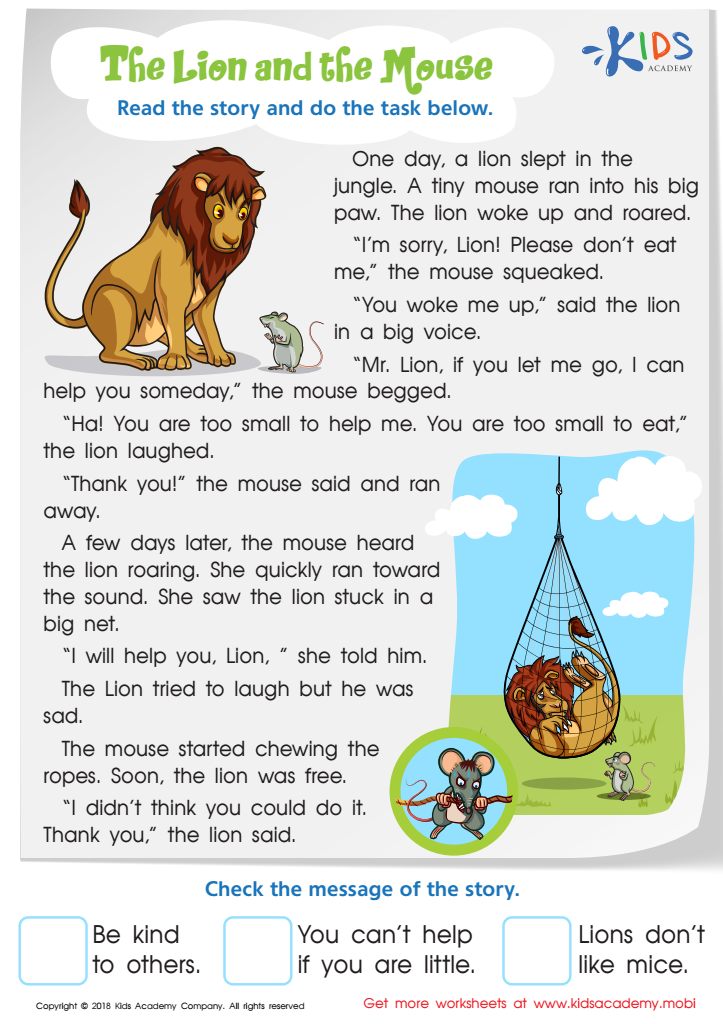

The Lion and the Mouse Worksheet
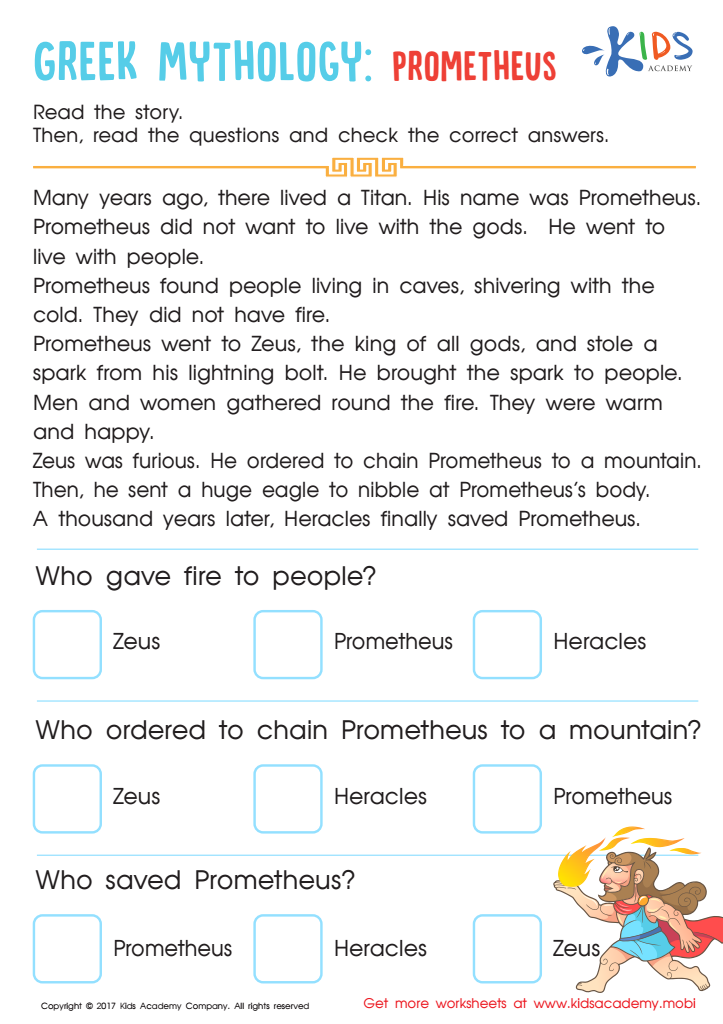

Prometheus Story Worksheet


Matter: Assessment 1 Worksheet
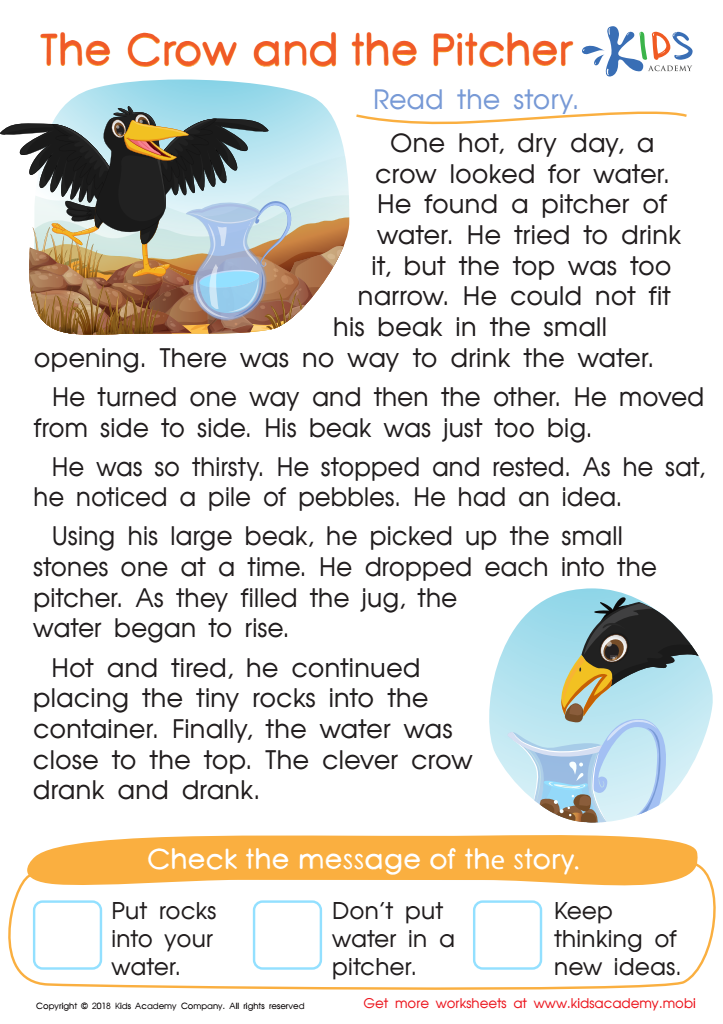

The Crow and the Pitcher Worksheet
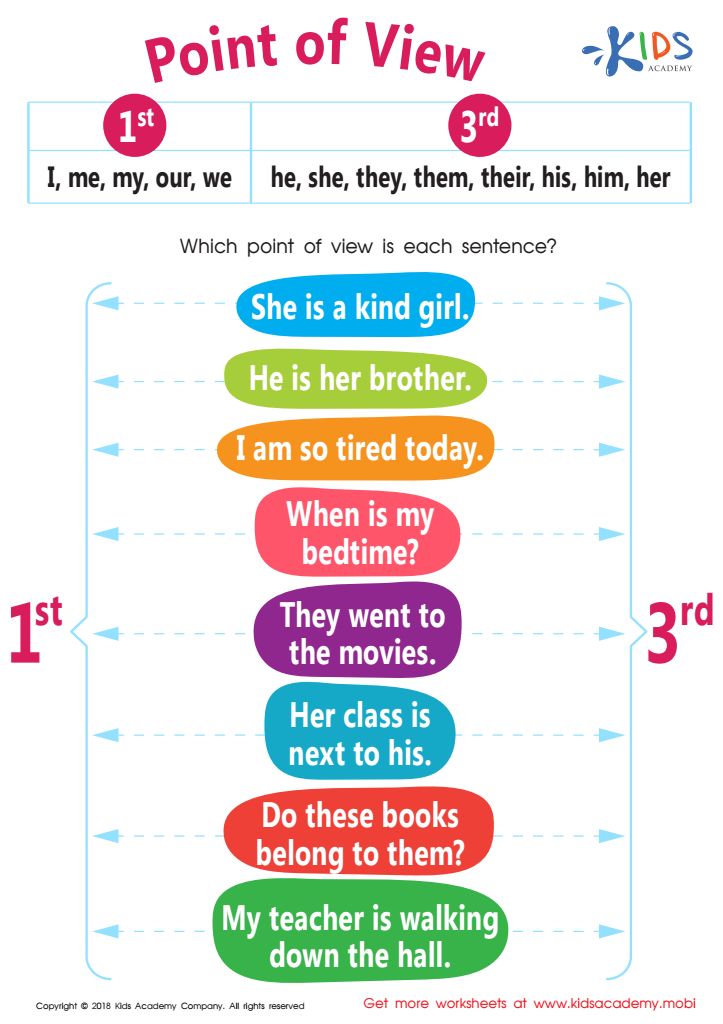

Point of View Worksheet
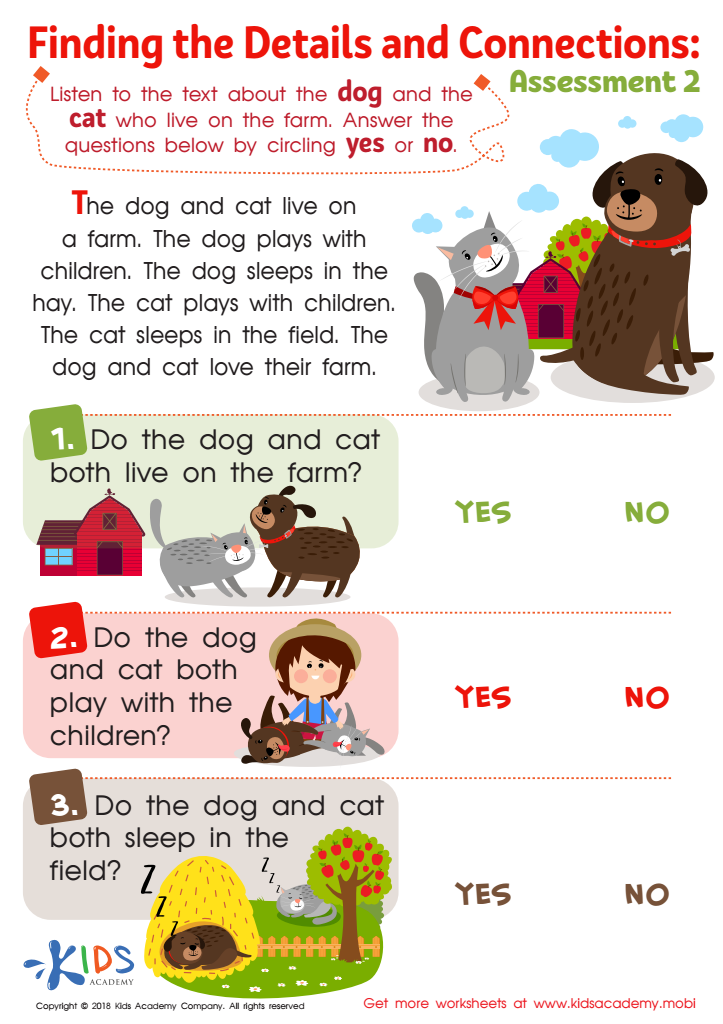

Finding the Details and Connections: Assessment 2 Worksheet
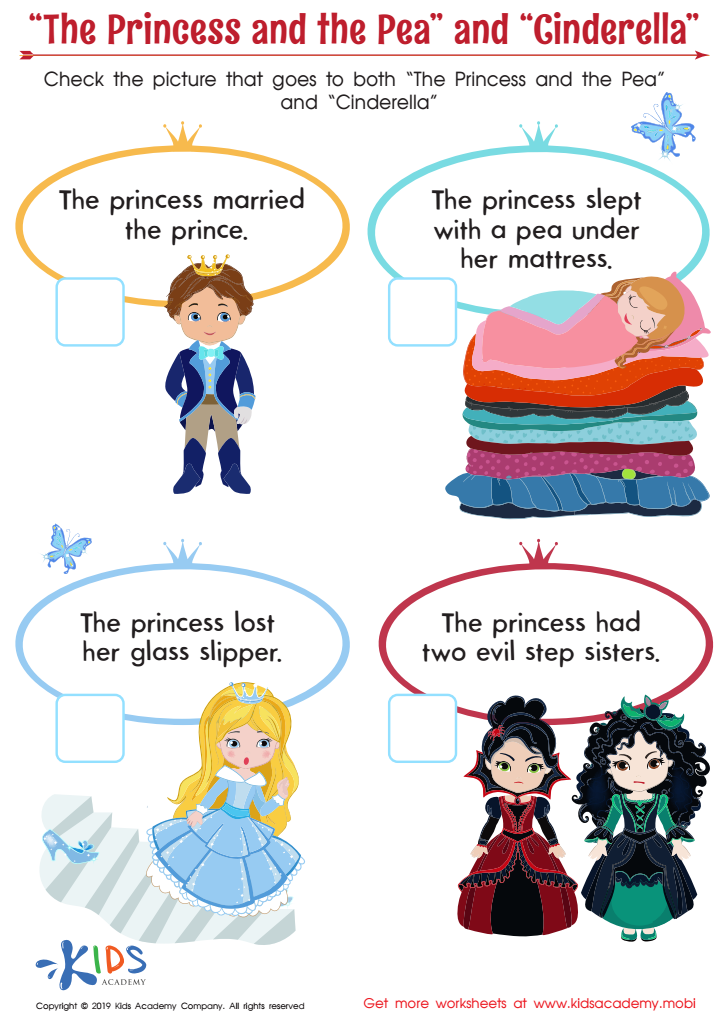

“The Princess and the Pea” and “Cinderella” Worksheet
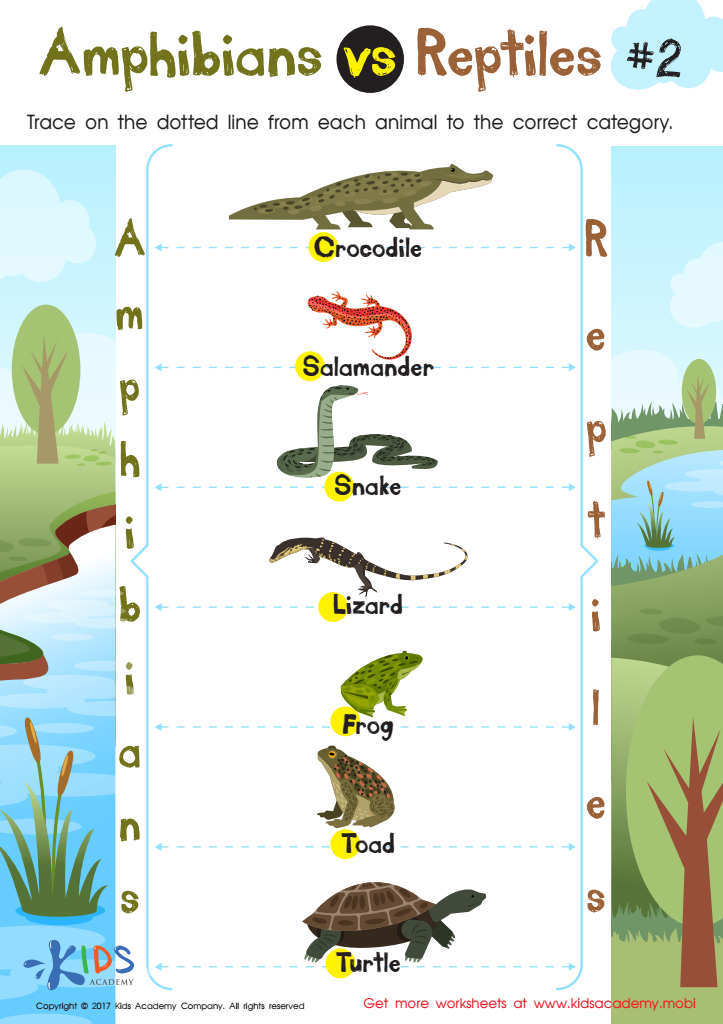

Amphibians vs Reptiles Worksheet for 3rd Grade
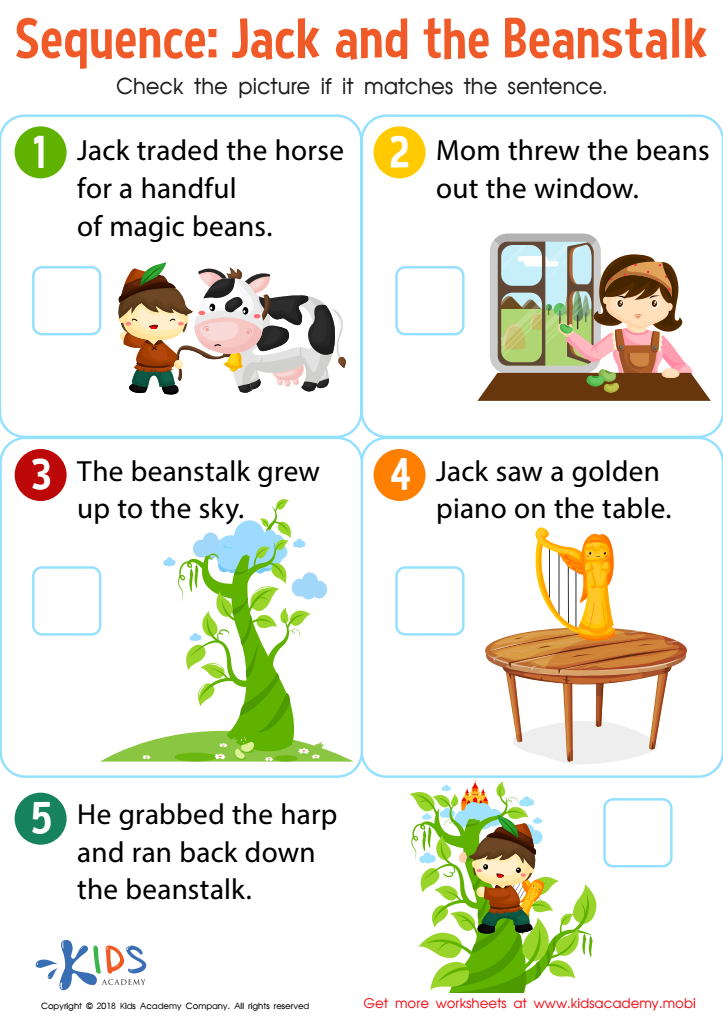

Sequence: Jack and The Beanstalk Worksheet
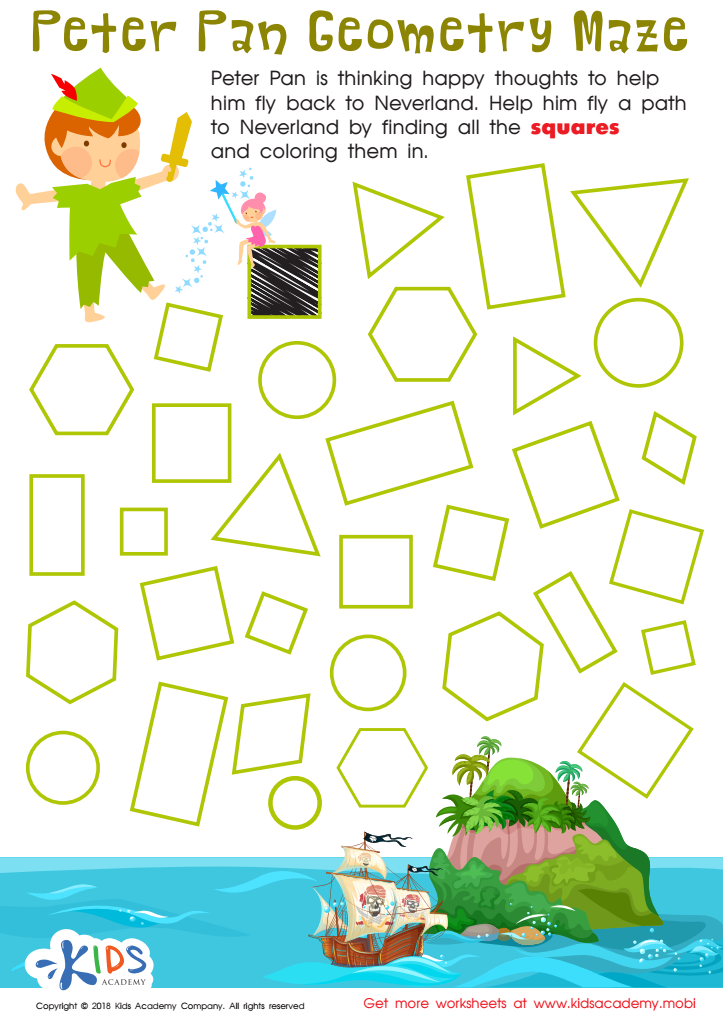

Peter Pan Worksheet


Tricky Problems Worksheet: Part 1
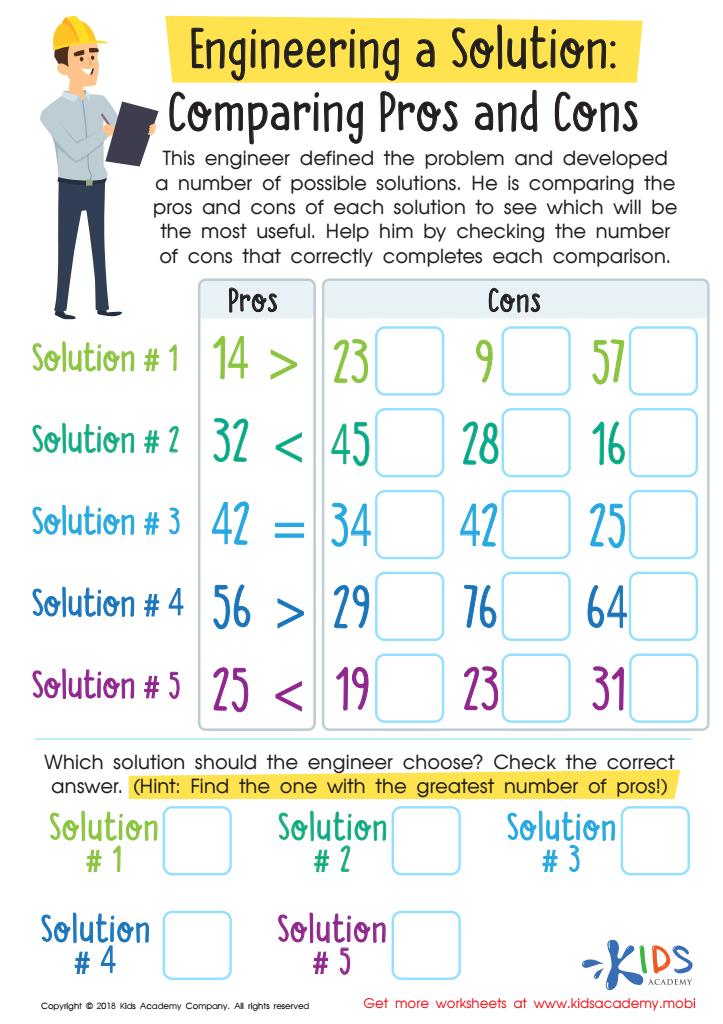

Engineering a Solution: Comparing Pros and Cons Worksheet


Sorting Animals in 3 Groups Worksheet
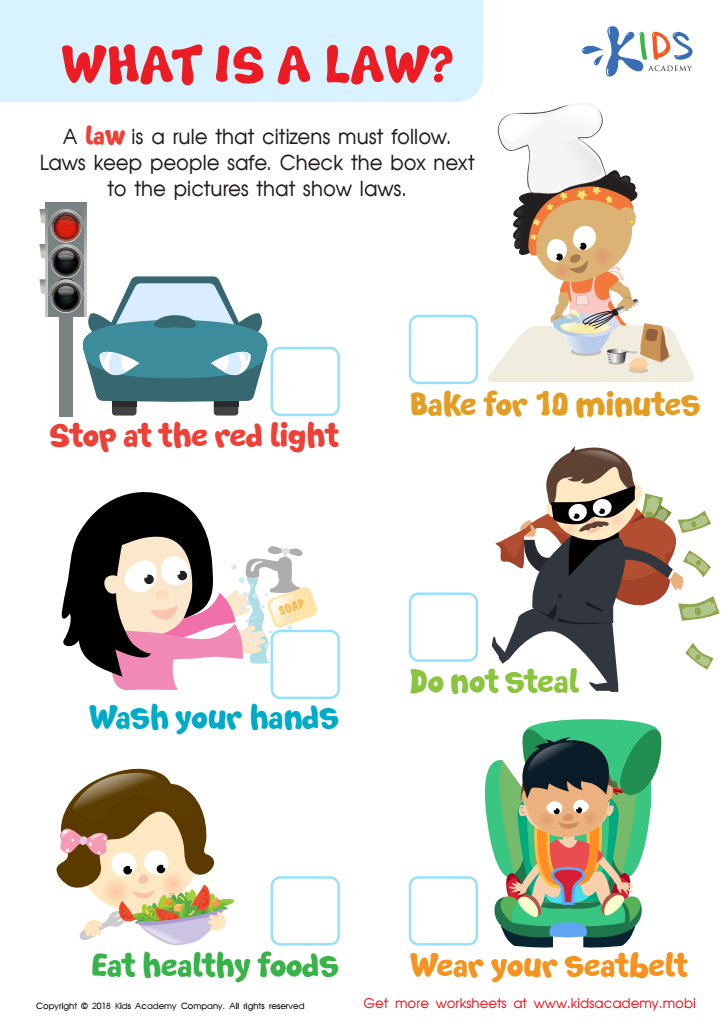

What is a Law? Worksheet
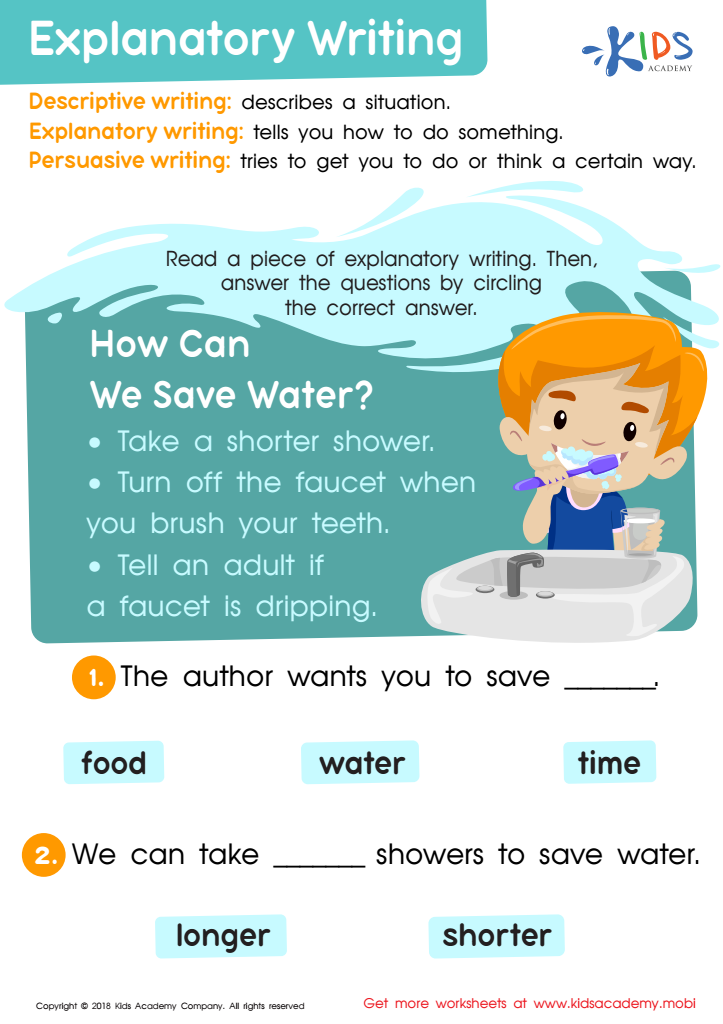

Explanatory Writing Worksheet
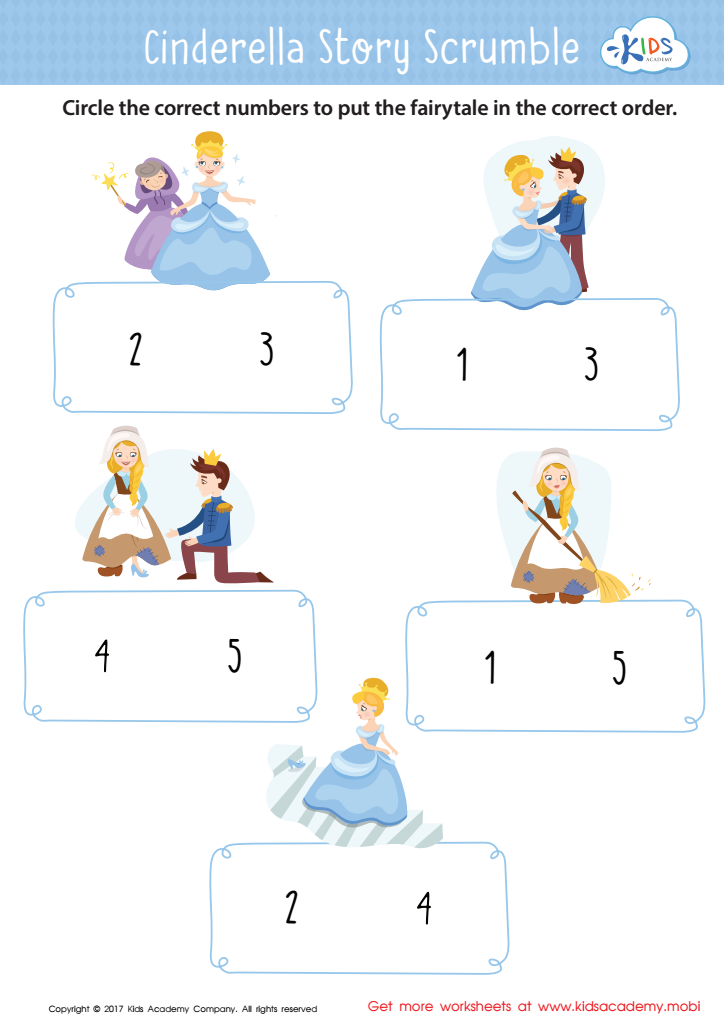

Cinderella Story Sequencing Worksheet
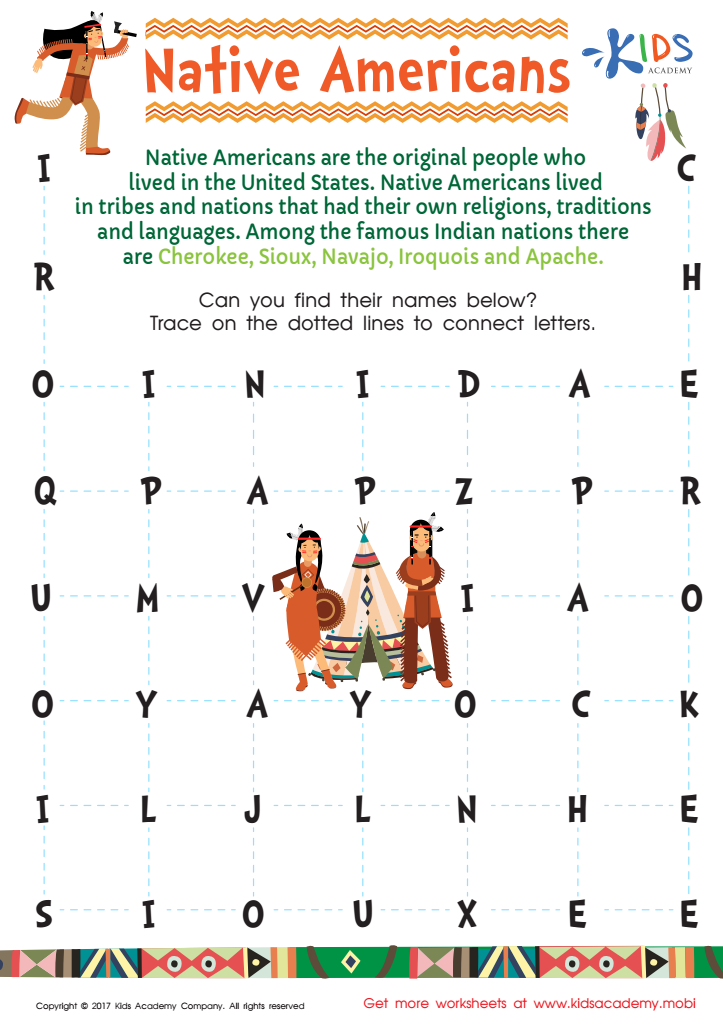

Native American Word Search Printable
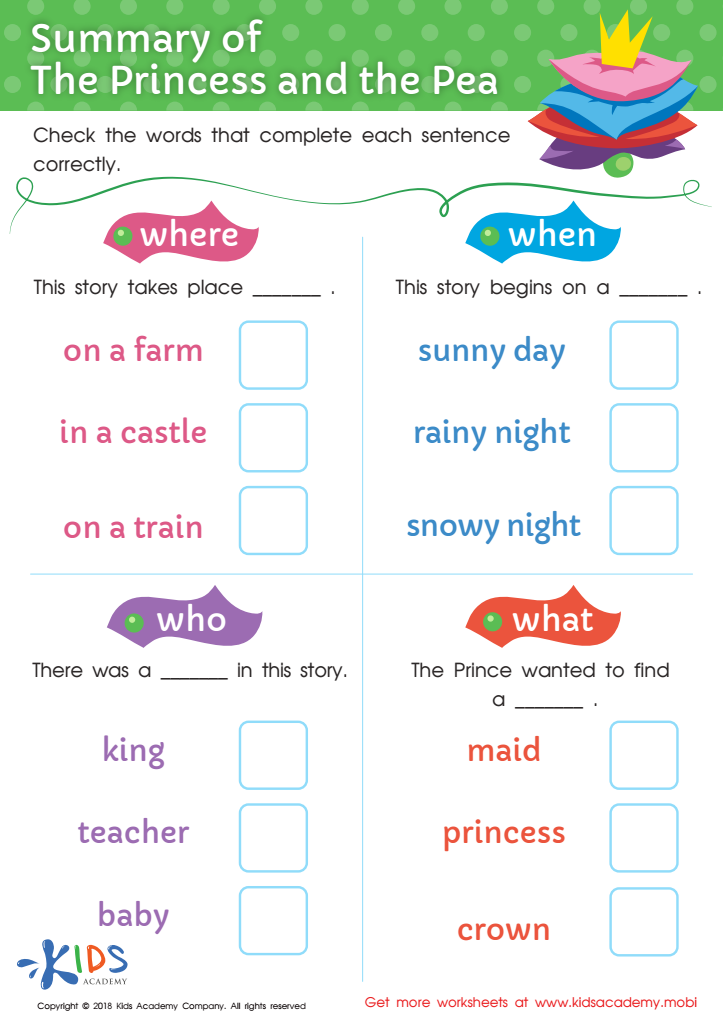

The Summary of the Princess and the Pea Worksheet
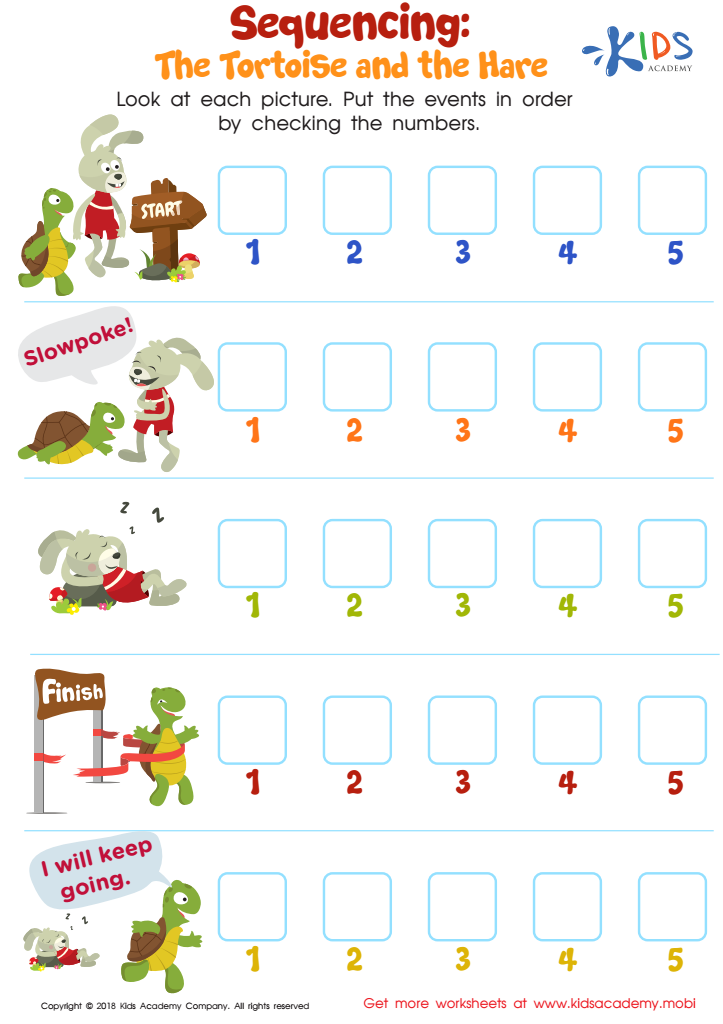

Sequencing: The Tortoise and the Hare Worksheet
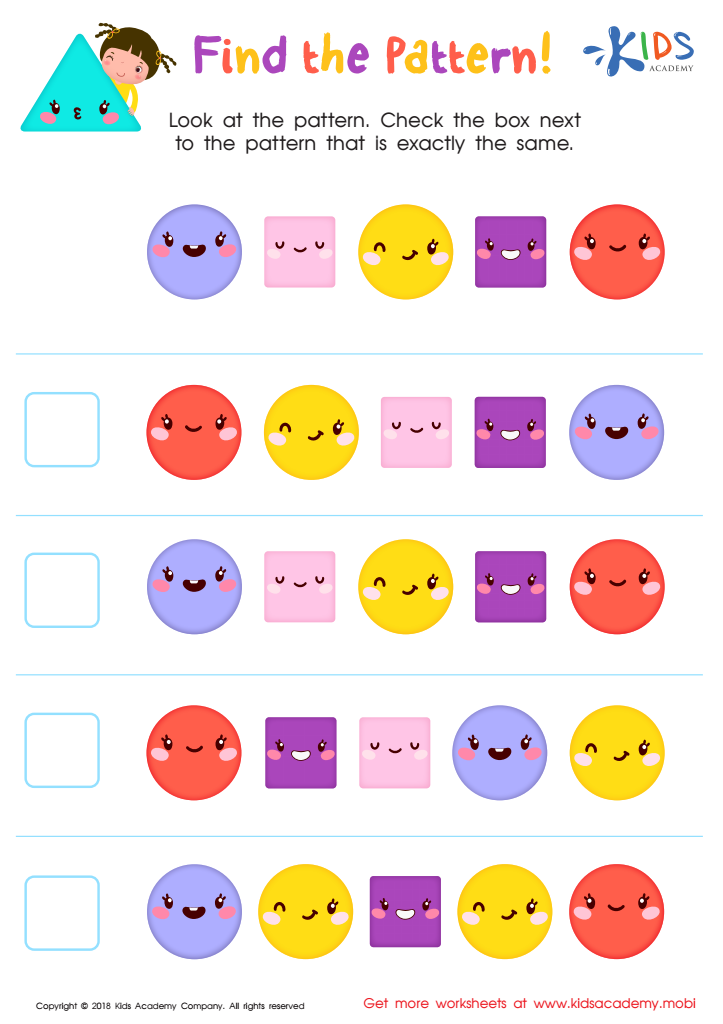

Find the Pattern Worksheet
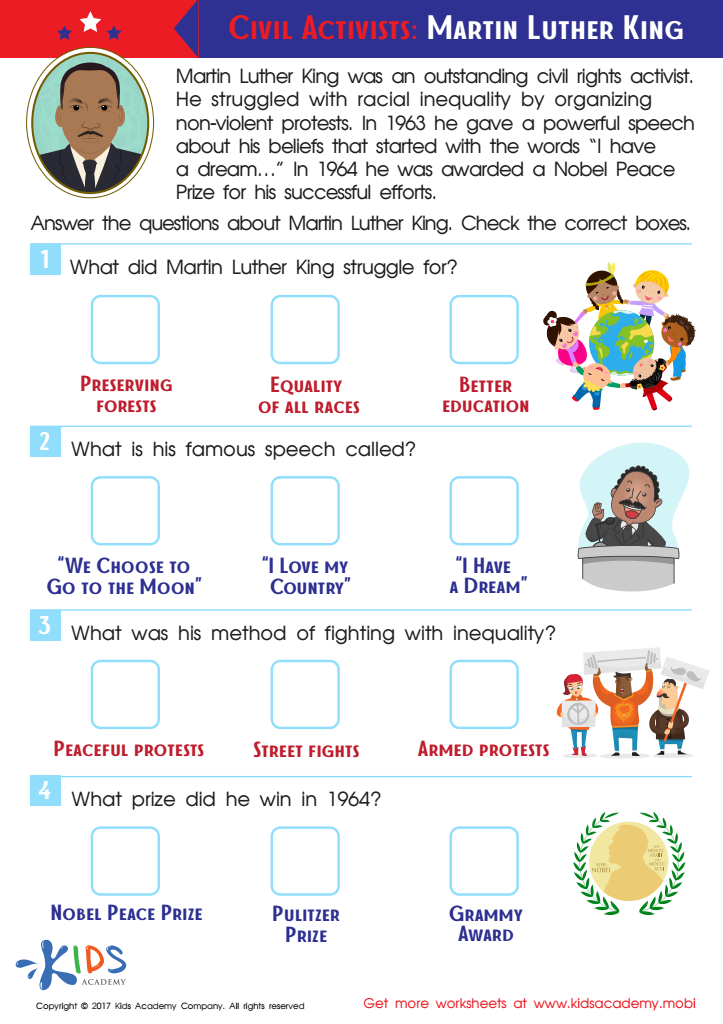

Martin Luther King Worksheet


Herbivores Printable
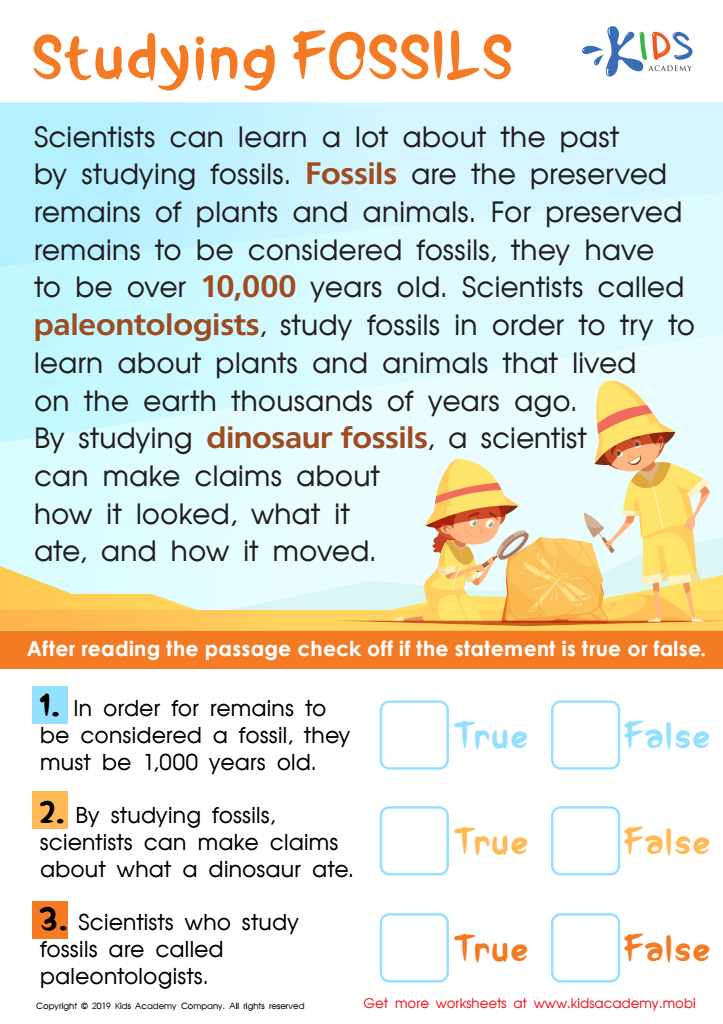

Studying Fossils Worksheet
Critical thinking is an essential life skill that helps children navigate complex environments, make informed decisions, and solve problems effectively. For ages 5-9, fostering critical thinking is crucial because it lays the groundwork for future cognitive development, academic success, and personal growth. At this stage, children are naturally curious and beginning to understand the world around them, making it a prime time to introduce and cultivate these skills.
Parents and teachers should care about nurturing critical thinking in young children to help them develop better reasoning, analytical skills, and creativity. This foundational ability allows children to thoughtfully question information, understand cause and effect, and evaluate multiple perspectives, which are valuable throughout their lives. For instance, when a child learns to question why a plant needs sunlight to grow, they are not merely memorizing facts, but grasping underlying principles.
Moreover, early exposure to critical thinking fosters independence and resilience. Children who can think critically are less likely to accept information at face value and more likely to seek evidence and justify their beliefs, enhancing their self-confidence and decision-making skills.
Therefore, integrating critical thinking into early education ensures that children can adapt, thrive, and engage in lifelong learning, which benefits both their academic journey and personal development.
 Assign to My Students
Assign to My Students

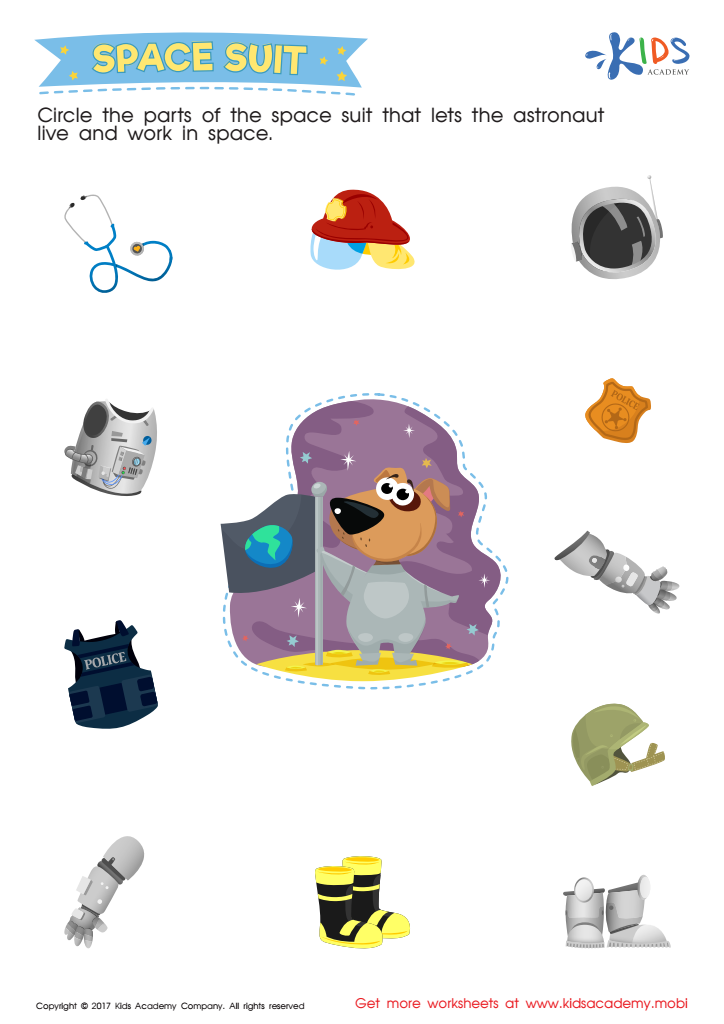



.jpg)
.jpg)


.jpg)








